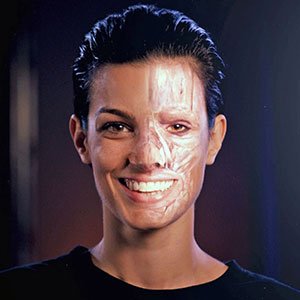Scientific analysis
By Thomas Viner
24-03-2017
It is easy to feel that science programming had its moment a couple of years ago – Nat Geo’s Cosmos was premiering on every single Fox outlet worldwide; Brian Cox was conquering the BBC if not the actual universe – and that that moment has passed.
It seems the viewers’ gaze has moved on to endless new drama series, and in the factual world, Planet Earth II and Natural History reign supreme.
But this really isn’t the full picture. There’s plenty of science on TV and plenty of people watching it, it just doesn’t always look like Science (with a big ‘S’). Yes, there’s still the BBC’s Horizon and PBS’s Nova, delivering pure science in one-hour doses, often featuring actual labs and men and women in white coats.
But a look at some of the rest of the world of science programmes gives a very different picture.
Take Science Channel. It has How the Universe Works, a hard-core cosmology show, now in its fifth season and doing its best ever figures for the channel. But it also has a You Tube-type clip show, Outrageous Acts of Science; myth-investigating magazine show What On Earth; and even a talent show, Mythbusters: The Search. And all this is finding an audience that is hungry for science content, but wanting it in all sorts of different forms and formats, borrowing from the rest of TV.

Your Face Says it All looks at why people
find others attractive
Yes, some people genuinely want to know how dark matter works, but other people want to laugh at idiots trying to fly and failing, and then to be able to explain why.
That’s what science is – a playground in which we constantly find new ways to explain the world around us, for different audiences with different interests, attention spans and levels of prior knowledge.
In the UK, there are content-rich shows delivering solid, relatable information like Trust Me I’m A Doctor and The Truth About… on the BBC, but also Inside the Factory and Big Life Fix, which bring science into day-to-day life and make it relevant to viewers.
And then there’s Guy Martin on Channel 4, slipping science into daredevil stunts by the back door, or Your Face Says It All, grabbing the celebrity watchers, and giving them the science they want.
Around the world, there are shows taking science into new places or genres. Cradle To Grave on Nat Geo is a two-hour drama revealing the life of one everyman in his own words, from inside his body as well as outside. The Story of God with Morgan Freeman takes the scientific approach to the world of religion (as well as surprising those who thought Morgan actually was God). Brain Games and similar shows like Street Science are still going from strength to strength and are great examples of programmes taking science into the street and messing with people’s heads.
Of course, there’s Nat Geo’s drama Mars – bigger, shinier, more Ron Howard-y but still a science show.
And looking to the future, there’s a lot to be optimistic about. Firstly, the pace of scientific discovery and technological innovation in the world is only getting faster, and that means more material for us programme makers.
And there can’t be many people who haven’t noticed science and technology making some difference to their everyday lives. We’re all geeks now, and that means the job of explaining what those nefarious scientists are doing has become even more important. But our job is also about finding ways to reach audiences, to tell them complex, factual and nuanced stories about science that open up a world of wonder. It’s not about patronising them with a didactic tone of voice.
The tools we use to tell stories are only becoming more extraordinary. For the first time, our imaginations really are the limit. Science as drama? Go for it. A science gameshow? Why not? CGI is getting cheaper and more eye-popping. Big data – how big do you want it? Live experiments, virtual and augmented reality, digital, shortform, science theatre – throw it all in and you come out with something fascinating, intriguing and enlightening.
So maybe science’s moment on the box is now.














.jpg)




























